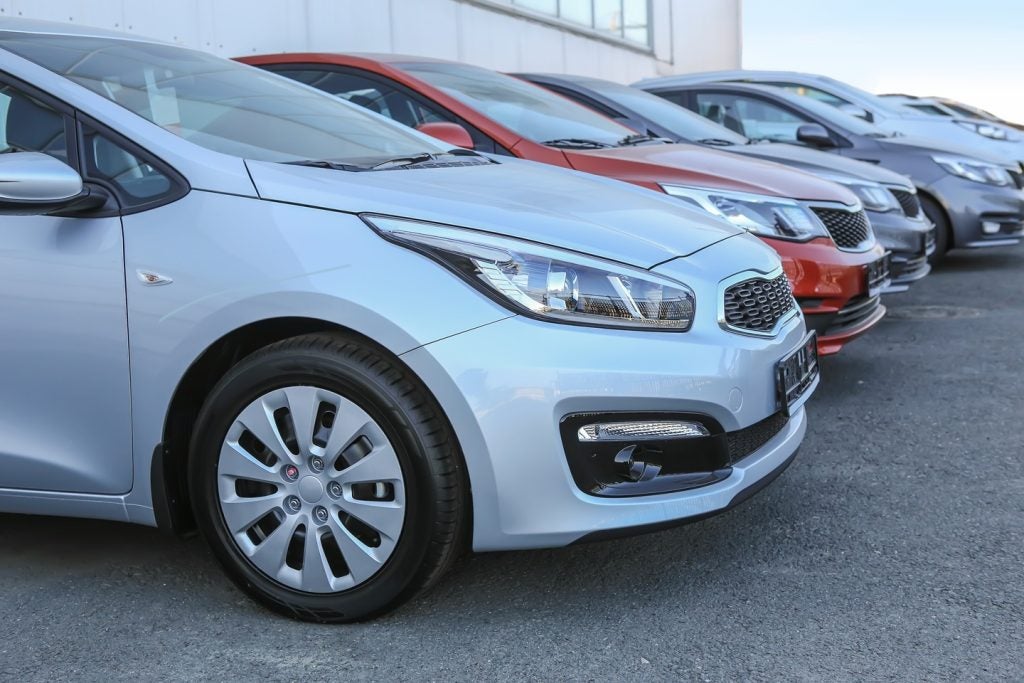A survey of fleet managers undertaken by the BMW-owned
multimarque fleet management and leasing company Alphabet has found
that, despite the issue’s high visibility in specialist and popular
media, the environment is not at the forefront of policy decisions
for the majority of those in charge of company car schemes.
Mark Sinclair, director of Alphabet, said he was “surprised” by
the survey’s findings, especially by the low percentage – only 7
per cent – of fleet managers who said that taxation was their main
reason for implementing policies aimed at ‘greening’ a fleet (see
table 1).
The move to a CO2-based car tax regime has “yet to filter
through” in many instances, Sinclair observed. As a result, too few
companies are “joining the dots” between greening a fleet and
saving money, he believes: “I think there is a ‘disconnect’ within
many companies between the finance department and the fleet
manager. It is very important for fleets to think about whole-life
costs, but very hard to model this, as it is an extremely
complicated area.” Fleet providers can help with whole-life cost
calculations, he said, thanks to their sophisticated modelling
software.
Elsewhere, the survey found that many fleet managers are
apathetic about going green, and that the majority (55 per cent) of
those who have taken green action have not set up appropriate
methods of reporting progress on green targets. “Fleets with a high
proportion of essential use cars, and those that do not offer
drivers a choice of car are least likely to have green targets,”
Alphabet said.
Many company fleet managers have already acted to reduce the CO2
emissions profile of the vehicles on their book (see table 2), and
it is certain that more and more companies will follow suit, driven
by both concern over the rising cost of fuel and company car tax
legislation. But “capping CO2 can be hard,” Sinclair said, as
drivers can be resistant to what they see as a restriction of their
choice, and a downgrading of the ‘perk’ of a company car. “Fleet
managers don’t want to risk getting the implementation of green
policies wrong, and being seen as the bad guys,” Sinclair pointed
out. “In some companies, green fleet policies have a bad name as
they are seen as providing worse cars for more money, when really
the opposite is true.”
There is good news for fleet providers. “If you want to be
green, you have to have a company car,” Sinclair stated, a view
backed up by the survey, which found 31 per cent of respondents
looking to put drivers back into company cars (see table 3).
How well do you really know your competitors?
Access the most comprehensive Company Profiles on the market, powered by GlobalData. Save hours of research. Gain competitive edge.

Thank you!
Your download email will arrive shortly
Not ready to buy yet? Download a free sample
We are confident about the unique quality of our Company Profiles. However, we want you to make the most beneficial decision for your business, so we offer a free sample that you can download by submitting the below form
By GlobalDataIn all the survey provides a mixed picture of the progress of
green fleet policies. However, Sinclair believes that a “tilt
point” has been reached in terms of momentum and visibility of the
subject, and that fleets will have to take notice “from hereon
in”.
|
TABLE 1 |
|
|
Why go green? |
% |
|
The environment |
41 |
|
Cost saving |
29 |
|
Corporate social responsibility |
16 |
|
Tax |
7 |
|
Source: Alphabet |
|
|
TABLE 2 |
|
|
Actions already taken to make a fleet |
% |
|
Reducing CO2 of vehicles on fleet |
56 |
|
Switching to diesel vehicles |
15 |
|
Reducing journeys |
8 |
|
Trying to improve fuel fuel consumption |
7 |
|
Introducing hybrid cars |
7 |
|
Educating drivers |
4 |
|
Reducing number of drivers |
4 |
|
Source: Alphabet |
|
|
TABLE 3 |
|
|
Actions being considered for next 12 months |
% |
|
Restrict CO2 of cars offered |
84 |
|
Give drivers green advice |
73 |
|
Limit drivers to cars with better mpg |
61 |
|
Consider alternative fuels |
51 |
|
Offer driver incentives to choose lower-polluting cars |
46 |
|
Restrict journeys and encourage car sharing |
43 |
|
Look at bringing drivers back into company cars |
31 |
|
Limit who can drive on business |
31 |
|
Source: Alphabet |
|
Motor Finance Issue: 44 – June 08
by Jo Tacon ,
Published for the web: June 26 08 9:32
Last Updated: June 26 08 10:8







